The artificial key to a better tomorrow
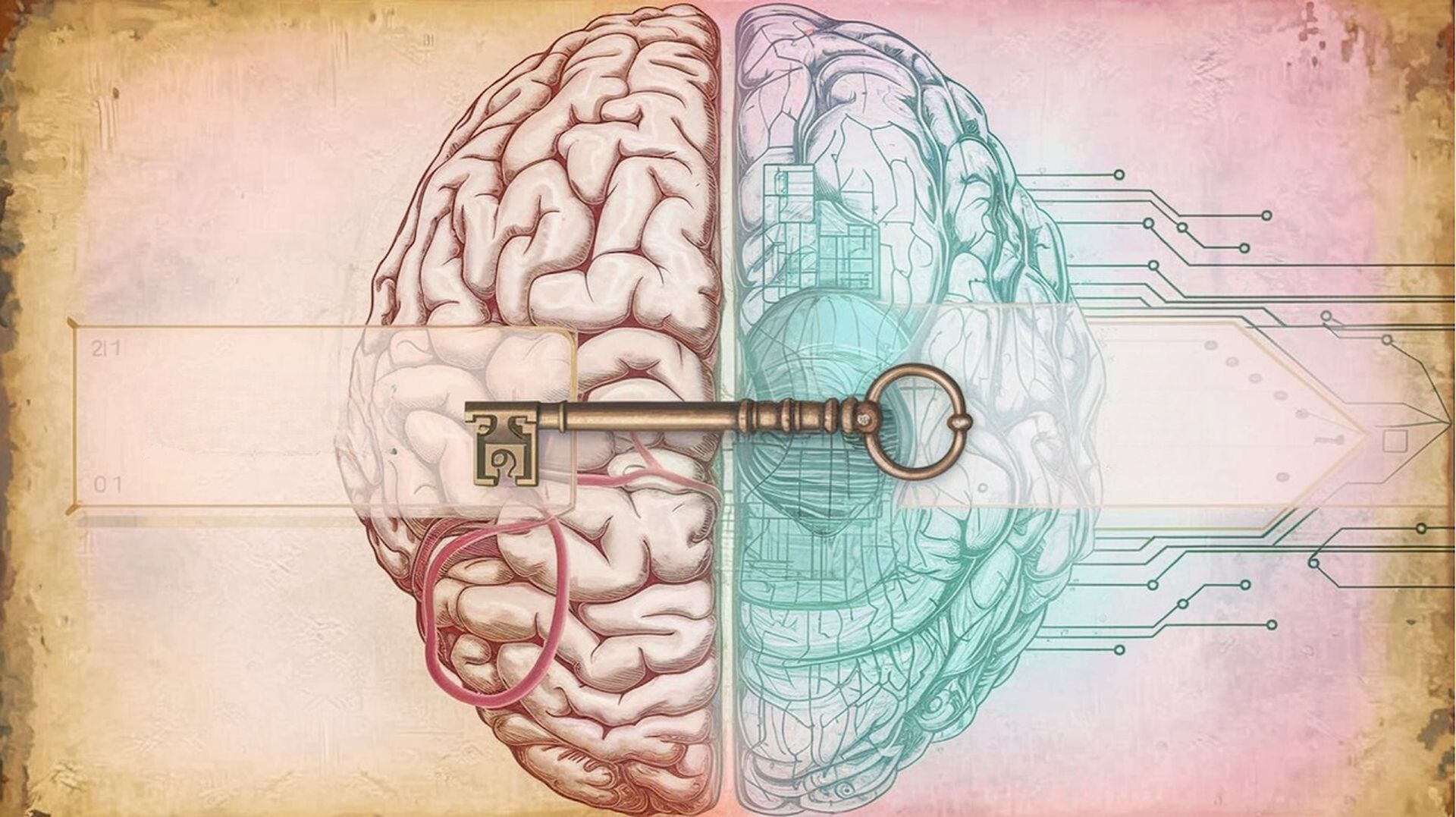
Artificial General Intelligence (AGI), the concept of machines reaching human-level intelligence, is often seen as the holy grail of AI development. Companies like OpenAI and Google’s DeepMind often present their breakthroughs as stepping stones toward AGI.
However, Neil Lawrence, a professor of machine learning at the University of Cambridge, believes this pursuit is misguided, calling AGI “nonsense” and arguing that AI and human intelligence should not even be compared.
Lawrence’s viewpoint, highlighted in his new book The Atomic Human: Understanding Ourselves in the Age of AI, pushes back against the narrative that AI will eventually rival human intelligence.
His argument is simple but profound: AI is fundamentally different from human cognition, and it’s a mistake to expect it to replicate the intricacies of human thought.
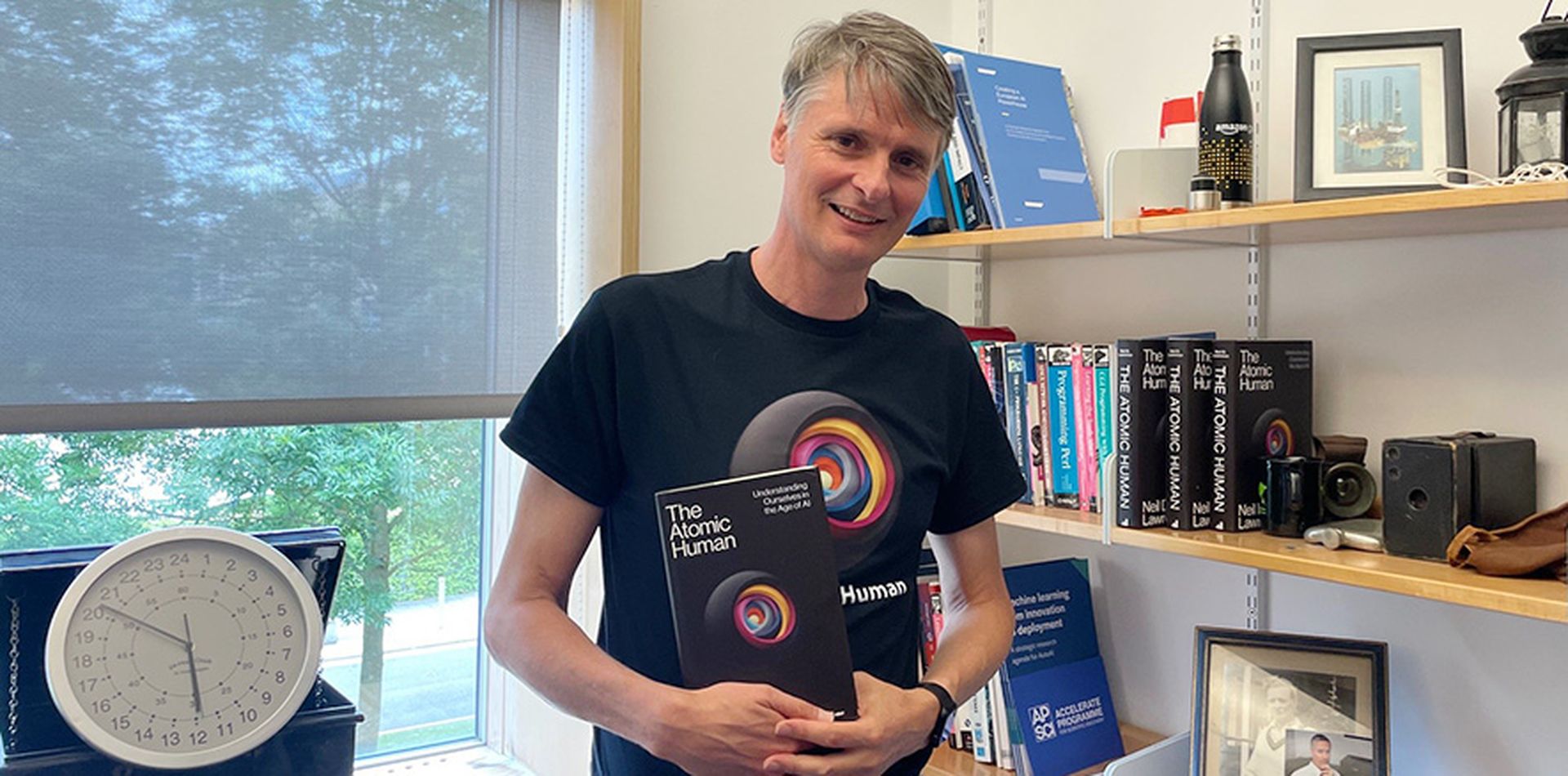 Lawrence argues AI and human intelligence are fundamentally different (Image credit)
Machines are not like us and that’s okay
Lawrence argues AI and human intelligence are fundamentally different (Image credit)
Machines are not like us and that’s okay
According to Lawrence, the rise of AI systems like ChatGPT and its competitors has led to a misplaced comparison between human and artificial intelligence. While these systems can perform a range of tasks previously thought to require human intelligence—such as writing essays or answering complex questions—Lawrence argues that their functioning is far more limited than the term “general intelligence” suggests.
In essence, AI is excellent at narrow, specialized tasks, often far surpassing humans in speed and efficiency. But Lawrence cautions that this form of intelligence is more akin to the behavior of ants than it is to human thought.
In an interview with NewScientis, he argues that AI systems, no matter how advanced, operate within predefined parameters and lack the broader cognitive flexibility that humans possess. AI’s intelligence, Lawrence suggests, is task-specific and programmed, while human intelligence emerges from biological complexity, emotion, and social interaction—things that machines cannot replicate.
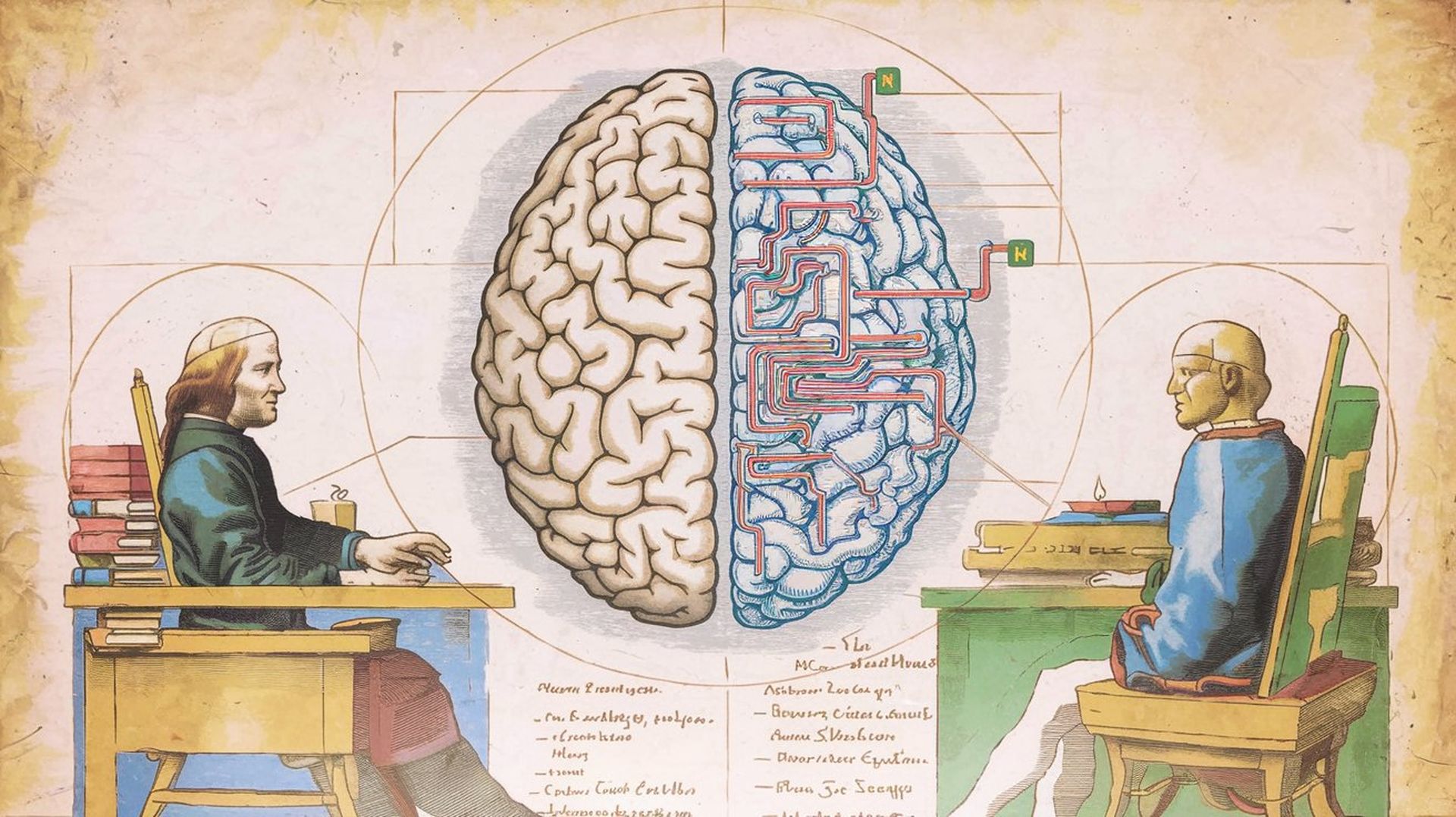 AI excels at narrow, specialized tasks but is not truly “general” in intelligence
AI excels at narrow, specialized tasks but is not truly “general” in intelligence
Lawrence dismisses the pursuit of AGI as a distraction, claiming it sets an unrealistic expectation for what AI can accomplish. He asserts that current AI is far from “general” and should not be expected to achieve human-like cognition.
“The nature of the intelligence we’re seeing in AI is extremely different from our own,”
He states, calling it “absurd” to treat machine intelligence as if it’s on a path toward becoming like human intelligence.
What makes us “unique”?What makes humans unique is a question that has perplexed philosophers for centuries. Many point to our capacity for abstract reasoning, self-awareness, and moral decision-making as key markers of what sets us apart.
Unlike animals, whose behaviors are often driven by instinct or survival, humans can contemplate existence, ponder the nature of the universe, and even question the meaning of life itself. This ability to reflect on our own thoughts—a trait known as metacognition—imbues our intelligence with a depth and complexity that we often take for granted.
It’s not just about processing information, but understanding, feeling, and reflecting on it, something AI, despite its vast computational power, cannot achieve.
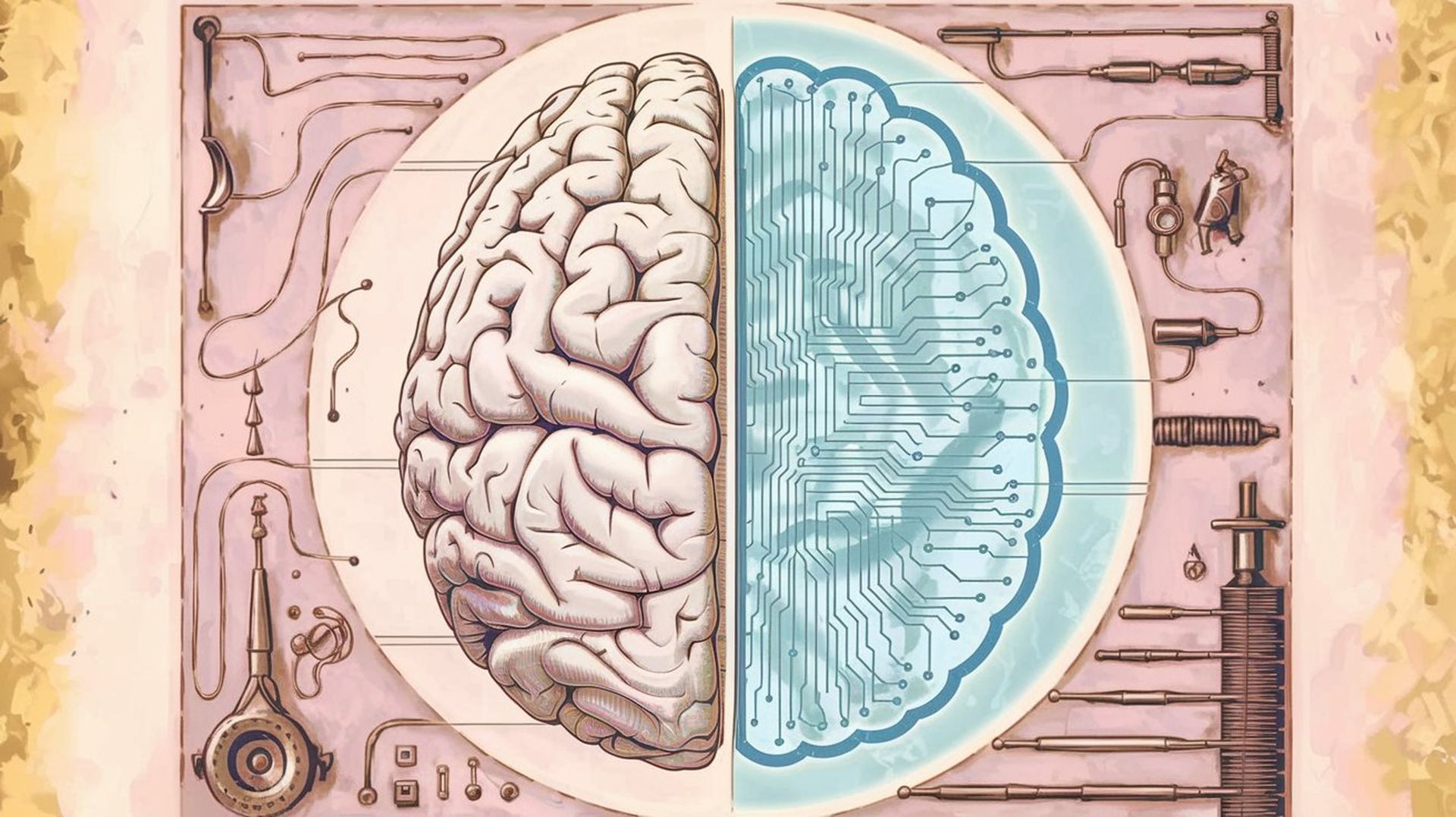 Human intelligence is rooted in biology, emotion, and social interaction while AI’s mind is wrapped with spirals of data given by humans
Human intelligence is rooted in biology, emotion, and social interaction while AI’s mind is wrapped with spirals of data given by humans
In biological terms, humans and animals share much of the same genetic blueprint. We evolved from common ancestors, and the mechanisms that govern our physical bodies—our cells, neurons, and organs—are remarkably similar. Yet, the human brain, with its vast neocortex, is wired for a level of sophisticated thought and emotion that seems unparalleled in the animal kingdom.
Our brains allow for creativity, language, culture, and a nuanced understanding of morality. While animals can exhibit extraordinary intelligence—like a crow using tools or a dolphin demonstrating social cooperation—their cognition lacks the self-awareness, cultural depth, and adaptability that humans possess.
When we draw a line from these biological and philosophical distinctions to AI, the contrasts become even starker.
AI, no matter how sophisticated, lacks the embodiment that is central to human and animal life. Our intelligence is deeply rooted in our biology, influenced by our emotions, physical sensations, and social bonds. AI, by contrast, operates in an entirely different realm—it processes data, learns patterns, and performs tasks, but it doesn’t feel, reflect, or engage in the emotional and social complexity that defines human and even animal experience.
AI might be able to simulate aspects of human behavior, like recognizing faces or generating text, but it fundamentally lacks the depth of human consciousness. The experience of being human—grappling with joy, sorrow, love, and existential questions—is something that cannot be encoded in algorithms.
Transforming society, not replicating humanityWhile AI may never replicate the full scope of human intelligence, it is already transforming society in profound ways. Rather than striving to mimic human consciousness, the true strength of AI lies in its ability to complement and extend human capabilities.
Machines are not bound by the limitations of biology—no fatigue, no emotion, no ethical dilemmas—making them highly efficient at tasks that require speed, precision, and data processing on an unimaginable scale.
This makes AI a powerful tool, not a replacement for human thought, but an enhancement of what we can achieve.
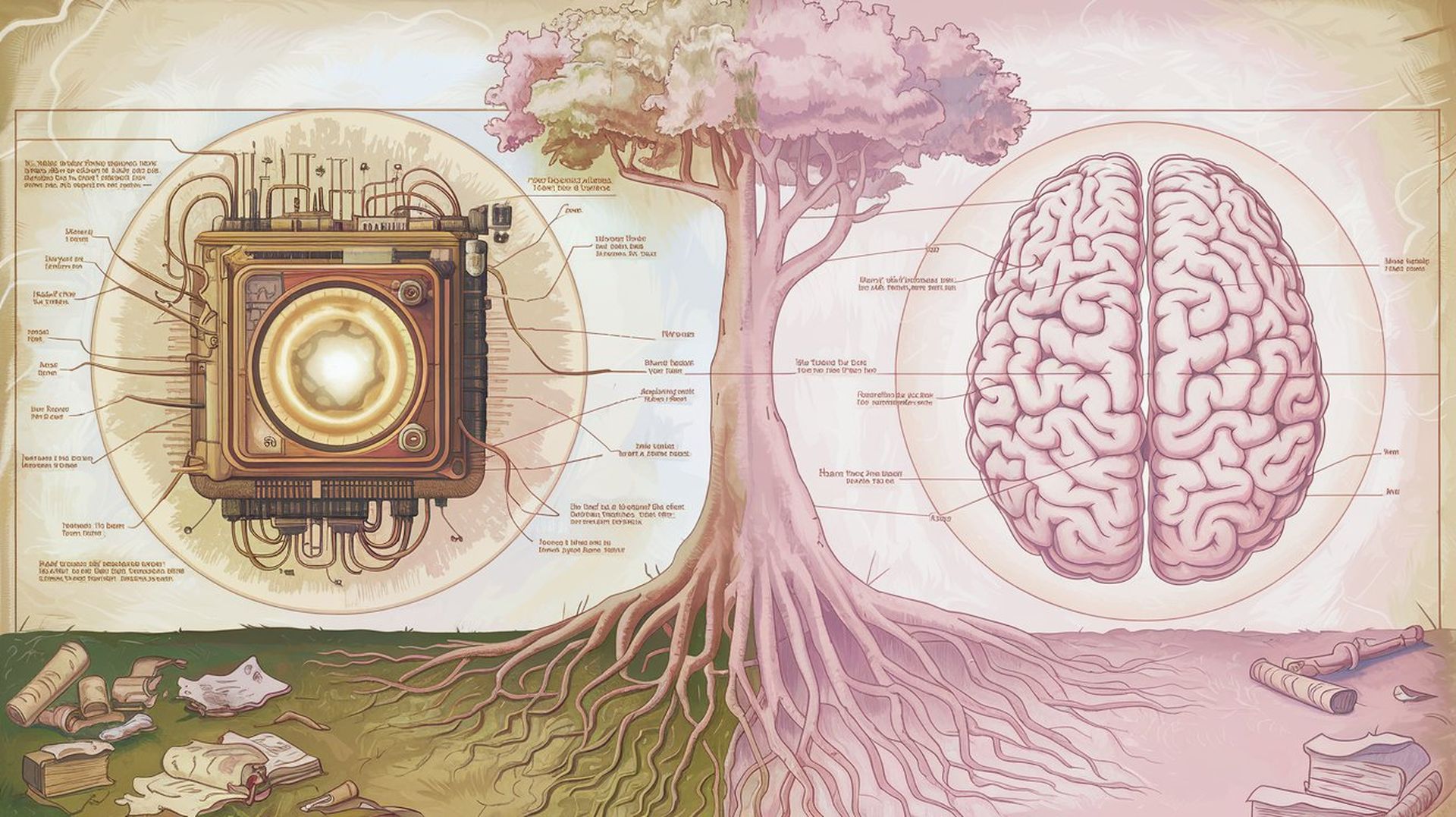 AI lacks the biological embodiment central to human and animal experience
AI lacks the biological embodiment central to human and animal experience
However, this transformation is not without challenges. The growing reliance on AI prompts deeper questions about ethics, privacy, and control. As AI systems become more integrated into daily life, they start to influence decisions that traditionally require human judgment—decisions laden with moral implications. While AI can process facts and probabilities, it cannot grasp the ethical nuance of its actions, leaving society to grapple with how and where to apply such technologies responsibly.
The key is to recognize AI’s role as a tool, not an entity. As society evolves with AI, we must focus on leveraging its strengths to solve problems that are beyond human capacity, without assuming it will ever mirror the full spectrum of human experience. Its ability to process vast datasets, perform high-speed calculations, and streamline repetitive tasks should be seen as an opportunity to transform our world—not an attempt to replicate what makes us human.
Let’s stop comparing, start collaboratingAs we advance into an era where artificial intelligence increasingly intersects with human endeavors, the emphasis should shift from comparing AI to human intelligence to exploring how these two forms of intelligence can work in tandem. The binary debate of whether AI can or cannot replicate human thought obscures the more productive discussion of how AI can complement human skills and augment our capabilities.
The crux of this collaborative potential lies in recognizing that AI is not a competitor to human intelligence but a partner that enhances our abilities.
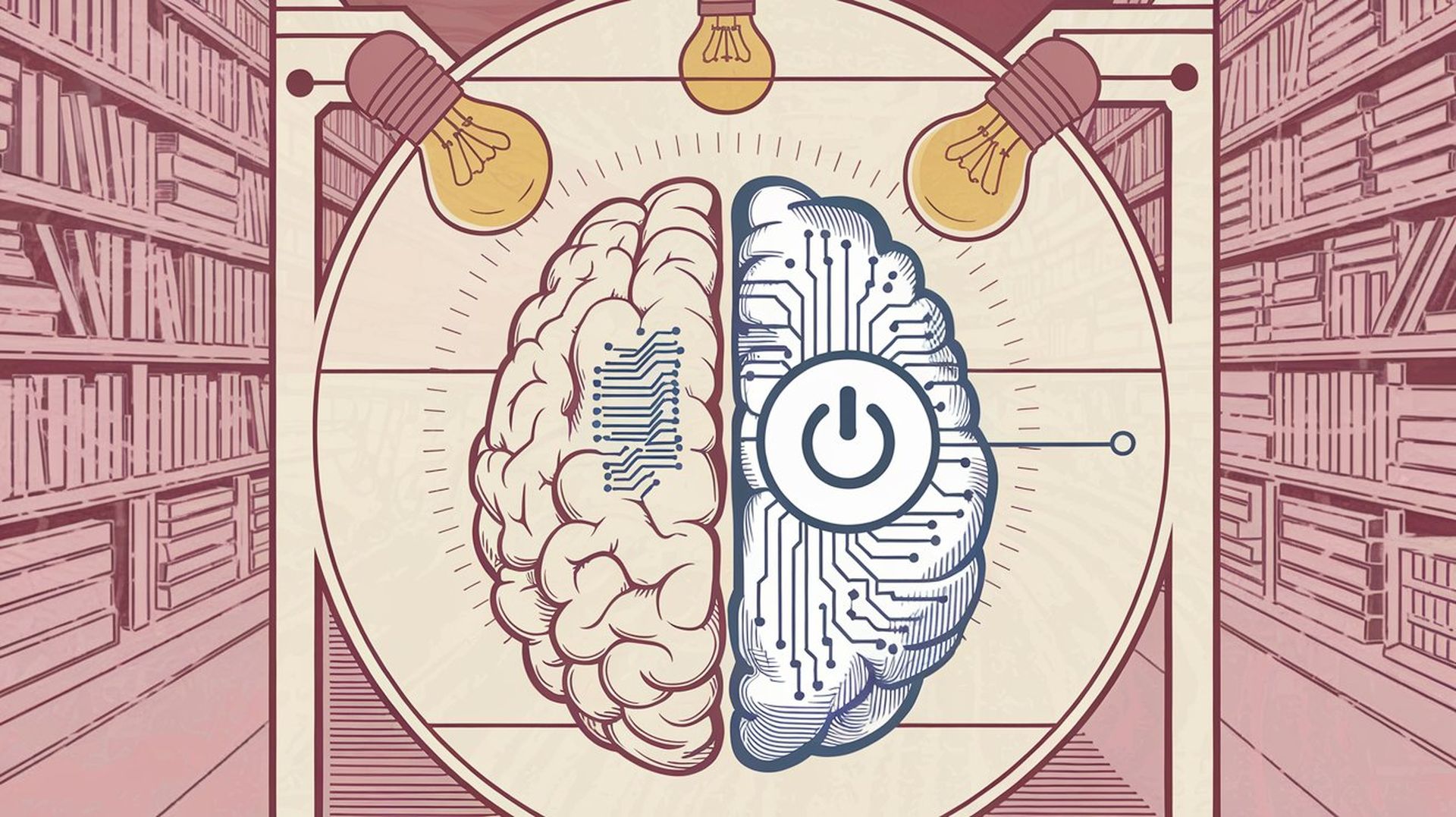 AI should be viewed as a tool to enhance human capabilities, not as a competitor
AI should be viewed as a tool to enhance human capabilities, not as a competitor
The future of AI should be about harnessing its capabilities to amplify human potential rather than seeking to replace it. By focusing on collaboration, we can leverage AI’s strengths to tackle complex global challenges and improve quality of life. This approach requires a shift in mindset from viewing AI as a threat to recognizing it as a tool that, when used thoughtfully, can help us achieve our collective goals.
Ultimately, the goal is not to replicate human intelligence but to foster a synergy where AI enhances human decision-making, creativity, and problem-solving.
Embracing this perspective allows us to utilize AI as a powerful ally in our quest for progress, achieving what neither humans nor machines could accomplish alone.
Image credits: Emre Çıtak/Ideogram AI
